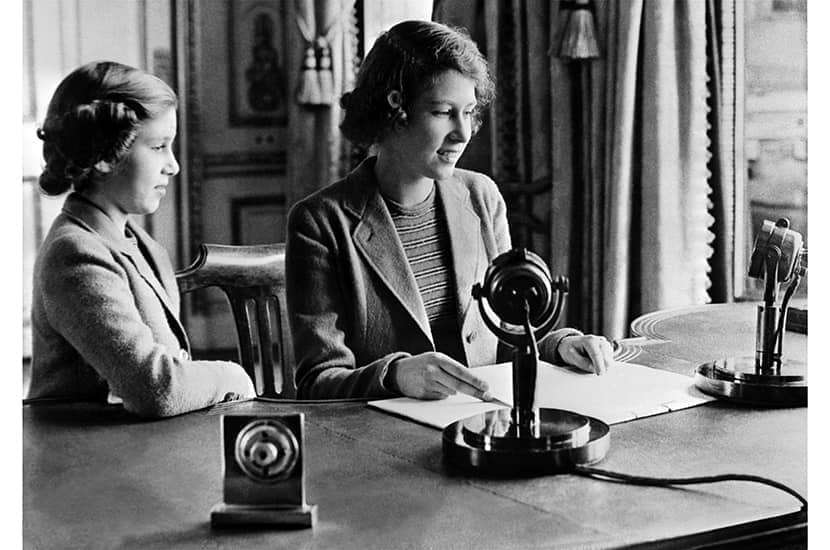If you have ever thought that there cannot be anything new to say or to learn about the Queen, you have not yet read Robert Hardman’s revelatory new biography of her in this, her astonishing Platinum Jubilee year.
Hardman has spent the past 30 years researching and understanding the British monarchy, and he writes with an extraordinary fount of knowledge but, even more important, with a heartfelt appreciation of what has been called ‘the genius of constitutional monarchy’ and for the members of the family who implement it. He has interviewed everyone possible, including Prince Philip’s German great-niece and almost everyone else on the German side of the family, of whom the Prince took great care – as he did with every aspect of his life.
Queen of Our Times is intimately well- informed but never prurient. It is a stylish riposte to The Crown, the meretricious Netflix series which abuses history and rejoices in trivia and untruths about the royal family. The series has been especially cruel and dishonest about Prince Philip and the Prince of Wales. Time and again, Hardman elegantly exposes its lies.
The Queen’s constancy throughout 70 years of social change has been vital to preserving our sense of stability
The Queen’s reign has been defined by the heartfelt pledge she made in South Africa on her 21st birthday – that ‘my whole life whether it be long or short shall be devoted to your service’. Hardman writes that this promise was not in fact delivered on her birthday itself but was recorded by the BBC a week earlier, at a hotel in what was then southern Rhodesia. But, as he says, the important thing was her moving commitment to all the peoples of ‘this ancient Commonwealth, which we all love so dearly’. That trip with her parents through southern Africa in early 1947 forged a lifelong enthusiasm for the emerging Commonwealth of former British colonies. Without her cherishing, it is doubtful whether the unique international group would have survived so long.
Hardman has read the diaries of her grandfather King George V, who was not kind to his own children but fell completely in love with ‘Lilibet’. He details her deep affection for her father, the unexpected, modest King George VI, from whom she learned that monarchy means service.
She and her sister Margaret spent the war at Windsor Castle. Her father made her colonel of the Grenadier Guards, who were on duty at the castle, just before her 16th birthday. She immediately began the habit of writing to the mothers of soldiers who had been stationed there and then been killed in action. Hardman shows how that simple sense of caring, informed by her Christian sense of duty, has been constant throughout her life.
She has met 14 American presidents since Truman, a feat which probably no American could claim. George W. Bush probably knew her longest because he met her first during his father’s presidency. Like others, he believed that her faith was crucial to her: ‘It keeps life in perspective. She may be the monarch, but she’s not the ultimate monarch, which is interesting.’
Hardman reminds us that the Queen limits her public interventions, knowing that it is her continuing quiet presence, her emblematic role, that really matters. She did address the country two weeks after the first Covid lockdown began. She spoke from Windsor, reminding viewers that she had first broadcast from there as a 14-year-old to the children of the nation. As Hardman notes: ‘Many of those same children were now among the pensioners most at risk’ from Covid. Without being sentimental, she expressed her love of her country and noted: ‘The pride in who we are is not part of our past, it defines our present and our future.’ She concluded by quoting Vera Lynn’s much loved wartime ballad of hope: ‘We’ll meet again.’
A friend asked me recently how it is that Britain has avoided the bloody revolutions or dictatorships that have scarred so many other European nations. One answer was provided by the French philosopher Simone Weil, who died in England, representing the Free French, in 1943. She thought our constitutional monarchy – the fact that the most influential person in the nation was without power – had preserved our traditions of liberty, while countries such as Germany and France who had lost their monarchs had also periodically lost their freedom. I am sure she was and remains right.
The Queen’s constancy throughout 70 years of social change (if not turmoil) has been vital to preserving a sense of national continuity and stability. She represents values – faith, hope and charity – which millions of Britons feel, even if they are too rarely acclaimed nowadays. Queen of Our Times shows why her extraordinary lifetime of service should be celebrated, honoured and cherished.





Comments